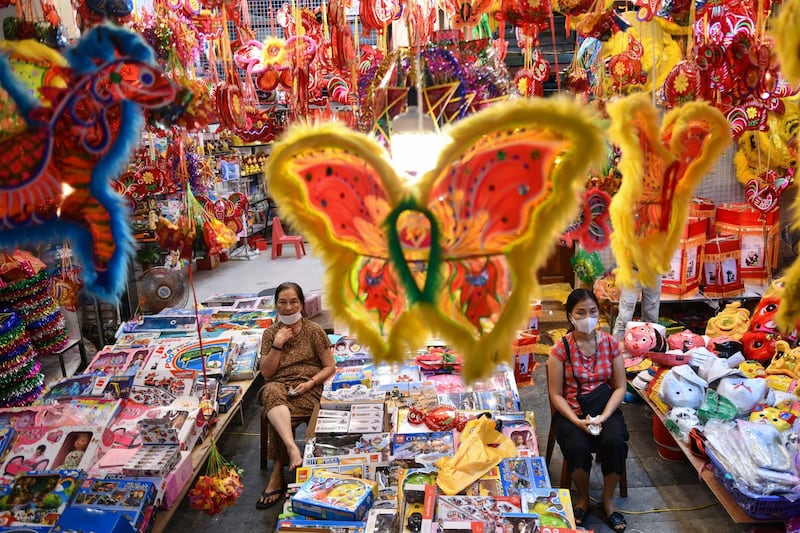Fresh from a trip to Havana where he agreed to buy millions of Cuban vaccines, Vietnam’s President Nguyen Xuan Phuc is seeking donations of COVID-19 doses from other countries and international organizations on the sidelines of United Nations General Assembly (UNGA), state media reported Wednesday.
In meetings in New York with and UN Secretary-General Antonio Guterres and UNGA president Abdulla Shahid, Phuc discussed Vietnam’s struggle with the pandemic and requested more doses of vaccines to inoculate more of its population of 98 million, the Vietnam News Agency reported.
The Seoul-based Korea Herald reported that Phuc met with South Korean President Moon Jae-in on the sidelines of the 76th session, where Moon promised to provide Vietnam with more than one million doses of coronavirus vaccine in October but did not specify which vaccine would be donated.
The pledge is South Korea’s first commitment to donate vaccines to another country directly.
President Phuc over the weekend traveled to Cuba on an official visit, where he met with Cuban President Miguel Díaz-Canel to finalize a deal for Vietnam to buy 10 million doses of the Abdala vaccine.
Italy has also promised to donate 800,000 doses of the British-Swedish AstraZeneca vaccine to Vietnam, raising Rome’s commitment to Hanoi to over 1.6 million doses.
Italy has been one of the EU’s largest donors to Vietnam via the COVAX program co-led by Gavi, the Vaccine Alliance; the World Health Organization (WHO); and the Coalition for Epidemic Preparedness Innovations (CEPI).
According to RFA statistics, China has so far donated 3.7 million doses of its Vero Cell vaccine to Vietnam and has promised three million more. The U.S., meanwhile, has provided about six million doses of its Pfizer and Moderna vaccines.
As of Wednesday, only about 7 percent of Vietnamese adults have been fully vaccinated. According to the WHO, to reach herd immunity, the country must increase the vaccination rate by tenfold.
United Nations Secretary-General Antonio Guterres told UNGA Tuesday the world deserves a failing grade in ethics for the uneven distribution of coronavirus vaccines.
"On the one hand, we see the vaccines developed in record time — a victory of science and human ingenuity. On the other hand, we see that triumph undone by the tragedy of a lack of political will, selfishness, and mistrust," Guterres said, noting that 90 percent of Africans have yet to be vaccinated for COVID-19.
"It is an obscenity. We passed the science test. But we are getting an F in ethics."
U.S. President Joe Biden on Wednesday announced that Washington would buy 500 million doses of the Pfizer vaccine to donate to developing countries.
"To beat the pandemic here we need to beat it everywhere," Biden said during a virtual summit on increasing the global vaccinations.
"This is an all hands on deck crisis," he said as he addressed world leaders and urged them to step up their donations as well.
With the additional doses, scheduled for delivery in January, the U.S.’ donation total will exceed 1.1 billion doses, but health experts warn that 5 to 6 billion are necessary to inoculate people in poorer countries.
Hanoi holiday sparks worries


After authorities relaxed social distancing measures in the Vietnamese capital Hanoi, the people swarmed into the streets to celebrate the Mid-Autumn Festival Tuesday, prompting the government to call on citizens to exercise caution.
State-run VTC News reported that Nguyen Van Phong, vice chairman of Hanoi's party committee, said the crowds of revelers "showed their reckless negligence and disregard for the health of themselves, their families and the community."
“Because of this, the city's recent achievements in the fight against the pandemic to which the Capital’s people made a decisive contribution, are seriously challenged,” said Phong.
The quarantine measures were lifted at 6 a.m. Tuesday, after two months where the city had been divided into different zones based on severity of outbreak, and citizens needed travel permits to move between the zones or outside the city.
State media reported that many of the capital’s streets were densely packed with people, and the city government had to prevent a mass gathering by locking down Hang Ma Street, popular with children for its many festival toys.
Local media reported that traffic on Wednesday morning in the city stretched for almost a kilometer (0.6 miles) at a checkpoint in Phap Van, a neighborhood in the city’s southern outskirts.
Even with the relaxed measures, Hanoi still maintains 22 checkpoints on roads that enter the city. Citizens wishing to enter or leave the city must still present identification and follow pandemic control procedures.
Wednesday was the first opportunity to leave for many of the people who became stranded in the capital after the lockdown. As many simultaneously tried to depart for their homes outside the city, long lines formed at the checkpoints.
Vietnam had been among the most effective countries in tackling COVID-19, reporting no deaths through late July 2020—a record that was attributed to effective contact tracing, strict quarantines, and early testing.
After successfully weathering three separate waves of the virus with confirmed cases numbering in the low thousands, a fourth wave arrived in April 2021. As of Monday, Vietnam has confirmed 707,436 cases of COVID-19 and 17,545 deaths according to data from Johns Hopkins University’s Coronavirus Resource Center.
During the fourth wave, the country locked down its largest cities and forbade residents from leaving their houses except to procure food, a move that has led to widespread unemployment and loss of income. But even as the harsh measures dragged on, reported cases continued to climb.
Reported by RFA’s Vietnamese Service. Translated by Anna Vu. Written in English by Eugene Whong.
